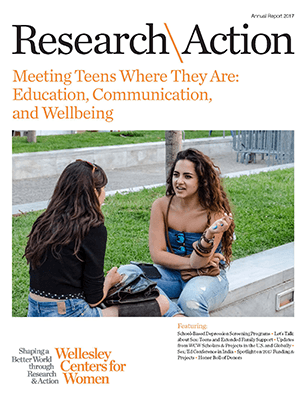The Ho-Chunk Nation is proud to report that it has grown its SEED program over the past five years, building from two original SEED-trained facilitators to 15, increasing annual participants from eight to 15, and having led more than 100 individuals through the SEED program in total.
Mary Jo Rozmenoski, a life-long resident of the Black River Falls, Wisconsin area, wanted to attend SEED as she hoped to better understand her own privilege as a White woman in the community. At the time, she was the Jackson County Service Coordinator for circuit court, a member of the local board of education, and a respite care provider for people with cognitive challenges.
The Ho-Chunk Nation partnered with the National SEED Project at the Wellesley Centers for Women to offer the Wisconsin SEED Institute. Rozmenoski, then the school board president, asked Barb Blackdeer-Mackenzie, one of the Ho-Chunk facilitators first trained at New SEED Leaders Week and the first Native American elected to the school board, why she never ran for school board president. Blackdeer-Mackenzie provided a litany of examples why it couldn’t happen—that people would refuse to listen. Then she charged Rozmenoksi with the responsibility of getting things done that she could not as a Native American.
Rozmenoski attributes her participation in SEED training as pivotal to her ability to make stronger relationships and to earn and give trust across communities. She currently represents the local school district as a delegate to the statewide Wisconsin Association of School Boards (WASB), where she also serves as vice president; in 2018 she will serve as the WASB president.
"SEED has been life changing in how I respond and look at things." Rozmenoski said. "When I’m in a large group, I scan the whole room, and I see who is there. I can gauge what is happening. When I looked around the room at the state school board meeting, I saw a lot of old white men. I asked questions and I confirmed what I was guessing—we do not reflect the diverse population of our state. The decisions made are in the best interest of the majority but not all of our students. That becomes problematic when trying to, for example, close the achievement gap."
Her vision statement for the one-year term as WASB president is as follows: "All students will engage in equitable learning that motivates them to increase their achievement and personal growth in order to reach their highest potential. Parents, students, highly qualified staff, and communities will be effectively engaged in the inclusive educational process in culturally responsive school. Core beliefs and values of each individual district are reflected to ensure all students succeed, are safe, healthy, and supported. I want to ensure that our educators are both inspired and empowered to teach every student."
Blackdeer-Mackenzie has great expectations of Rozmenoski and others who have taken part in SEED training to shift the conversations to equity for everyone. "I’m hopeful that we can continue to build more allies and continue the conversations."


